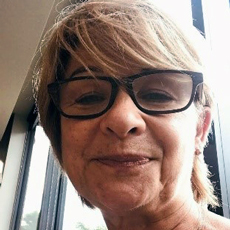Trust Monitoring visits – why and what it involves?
The College of Medical and Dental Sciences is required to monitor the standards of the learning experience provided by the partner NHS Trusts to deliver undergraduate education for the MBChB Programme. In order to assist this process, the College visits every Trust on a two yearly rolling cycle.
As with all Higher Education provision, monitoring of delivery concerns the assurance of quality and standards but also enhancement and improvement of the student experience. The monitoring of the clinical placements through this process is a formal process and the reports that follow focus on recommendations and areas for improvement, including specifics of how to meet recommendations made and expected timelines.
The General Medical Council (GMC) published – Promoting Excellence: standards for education and training in January 2016 and the documentation and visit questions will reflect the themes noted in these standards.
The monitoring team panel that visit the Trusts normally include a number of senior level College staff with responsibility for Medical Education and include a student representative and a lay member.
The GMC refer to ‘lay’ as someone who is not medically qualified and suggest that involvement in sought of lay individuals with relevant expertise. This ensures that lay people can bring a valuable alternative perspective to a discussion or a decision making process. This could be a (possibly recently retired) non-medical healthcare professional, a teacher, a bio-scientist, an educationalist and so on, but people from many other walks of life, unconnected with health or education may be equally appropriate.
During the monitoring visit, the panel team will meet with senior members of the Trust and those involved in the placement education teaching of students. The panel will also meet with a group of students.
Ahead of the monitoring visit, the Trust will be asked to complete a self-evaluation document along with supporting evidence, which will form a starting point for the discussions at the visit.
Following the visit a written statement of outcomes with any recommendations and actions required.
A summary from Yvonne Gateley, IPHE Contributor
Yvonne has volunteered to be involved as a ‘lay’ panel member on some of our Trust monitoring visits.
Here is a summary of her involvement based on a series of questions we asked.

Questions and responses
Q: Tell me about your personal motivation for becoming involved with our College network?
A: I have a family interest in Medicine – my daughter trained as a doctor at the University of Bristol. I was previously involved in Adult Education, assessing, supporting and providing training on Specific Learning Difficulties. Prior to joining the group, I had been working with the ISU team in the College providing support for failing specialty trainees in the West Midlands Deanery. After becoming a member of the IPHE network group in the College, I expressed an interest in becoming a lay member on the Trust Monitoring visits for the MBChB programme. Has a layperson, I wanted to use my experience and skills and put them to good use.
Q: Can you tell me about the specific IPHE activity that you have been involved in?
A: I have since attended a number of Trust Monitoring visits for the MBChB programme has a lay member.
Q: What was it that appealed to you about being involved in the activity?
A: Having an interest in education, I wanted to gain further insight in placement education from the student’s point of view.
Q: Who were the key stakeholders you worked with and what training or briefing did you have prior to starting the activity?
A: Ahead of the Trust Monitoring visit, I was invited to a briefing meeting. The whole process was explained fully to me and how I would be involved as a panel member.
Q: What did you feel your main contribution was to the activity? What specific skills or insight did you bring?
A: I was able to put my experience to good use. Being NHS aware, as well as having a healthcare educational background, provided clear insight. I felt that I had the qualities to contribute as lay panel member.
Q: If you could give one piece of advice to a contributor who was interested in being involved in this activity, what would it be?
A: I was fully prepared ahead of each visit. Reading the paperwork and reviewing student placement evaluations allowed me to gain insight, on their learning experience, ahead of meeting with them during the visit. There may be questions to ask the students about their experience whilst on placement. A good layperson needs to be fully aware and familiarise ahead of the visit! It’s not just about attending the visit, preparation is very important.
Q: Are there any other thoughts or reflections on this activity that you would like to share with us?
A: It is very rewarding and worthwhile attending these visits as a lay member. I was curious to learn about the process of student learning around medical education.
It is an opportunity to reflect on the educational experience and have more of an understanding of student perspectives.
Feedback from the Professor John Skelton, Quality Lead for MBChB Programme, who chaired the monitoring visits
Yvonne has been a great success - she is familiar with education, familiar with the challenges which hospitals face, and is able to engage with hospital colleagues and students at all levels, up to and including the hospital executive.
The specific value such a person can bring is that they are "lay" (Yvonne works neither for a hospital nor for a University), and yet sufficiently familiar with the workplace, and sufficiently shrewd, to understand them.